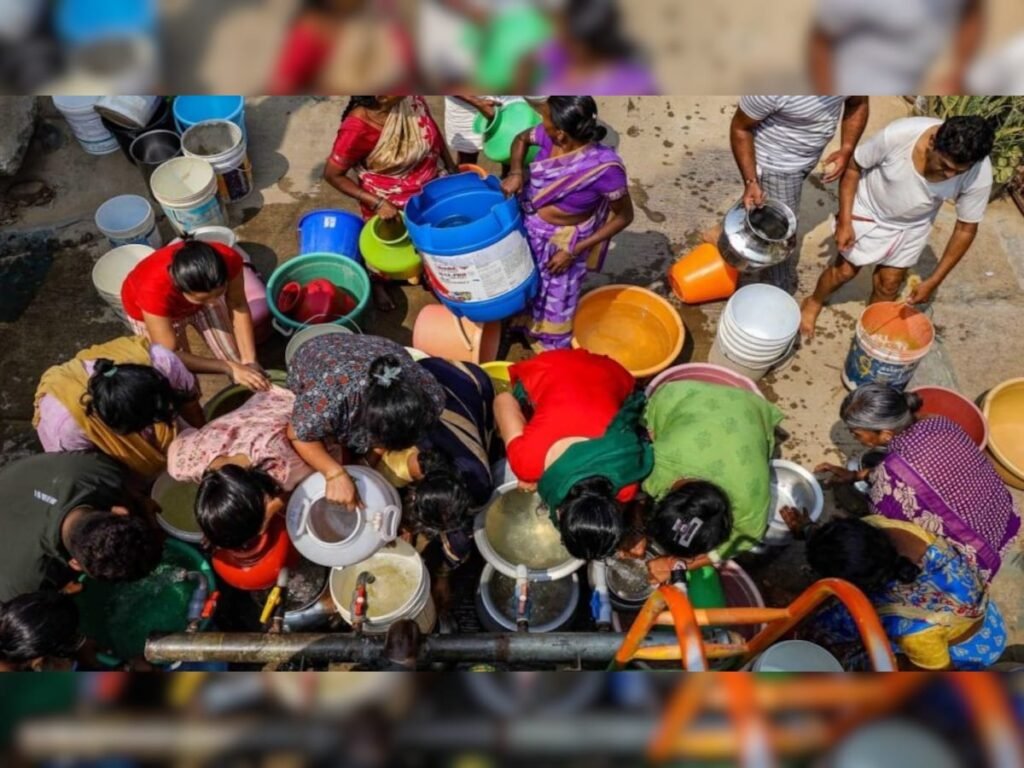
Bengaluru, often hailed as India’s Silicon Valley, is now grappling with an unprecedented water crisis that has pushed its residents to the brink. With a significant portion of the country’s tech workforce residing in the city, the water scarcity has cast a shadow over the once-thriving IT hub, prompting a reevaluation of work-from-home options and lifestyle adjustments.
The crisis, exacerbated by a prolonged absence of rainfall, has forced residents to adopt drastic measures to cope with dwindling water supplies. From rationing showers to relying on water tankers for daily needs, the situation has reached dire proportions in many suburban areas, where access to water has become increasingly scarce.
In Babusapalya, a suburban enclave, residents depend heavily on water tankers for their daily supply, but the demand has far outstripped the available resources. Despite efforts by the city administration to regulate tanker rates, logistical challenges persist, leaving many residents frustrated and disillusioned.
The water scarcity has permeated various facets of life in Bengaluru, impacting not only residential areas but also essential services like hospitals. Brookfield Hospital, situated in one of the parched zones, grapples with the challenge of sourcing sufficient water for critical medical procedures, such as dialysis.
In response to the crisis, authorities have implemented measures to mitigate water wastage and ensure equitable distribution. Fixed rates for water tankers and fines for inappropriate water usage underscore the severity of the situation and the urgency of conservation efforts.
As residents navigate the daily struggle for water, the political landscape simmers with discontent and blame. Opposition parties criticize the government for its perceived negligence, while officials defend their actions, citing long-term solutions such as the Mahadayi project to alleviate water scarcity.
Amidst the turmoil, conversations revolve around the feasibility of hosting major events like IPL matches at the M Chinnaswamy cricket stadium and the need for sustainable, long-term solutions to address Bengaluru’s water woes.
Residents, while acknowledging the government’s role in addressing the crisis, emphasize the importance of individual responsibility in water conservation. Calls for proactive measures and community initiatives echo through the city streets, underscoring the collective effort required to navigate through this challenging period.
As Bengaluru grapples with its worst water crisis in recent memory, the resilience of its residents and the determination to overcome adversity serve as a beacon of hope for a brighter, more sustainable future. However, the road ahead remains fraught with challenges, demanding concerted action and innovative solutions to safeguard the city’s water security for generations to come.
Sources By Agencies

